In this episode, board certified plastic surgeon, Zol Kryger, enlightens us about the frighteningly loose laws regulating the industry of plastic surgery, paving the way for a majority of cosmetic procedures being performed by doctors that are not board certified plastic surgeons. We talk about some of the very serious complications that can occur even in “minimally invasive” procedures, where the incidence rate is only increased by the flood of non-certified doctors who want to offer these procedures to augment their income. Fortunately, Zol provides listeners with a very specific list of important questions to ask a surgeon when considering any of the many cosmetic procedures available. We then go into the specifics of the most common procedures and the risk of complications for each of them, including breast augmentation, tummy tucks, liposuction, Brazilian butt lifts, botox and fillers, facial peels and lasers, and more. By the end of this episode, you’ll have a really clear understanding of what these risks are and how you can go about reducing those risks by choosing the right physician.
Subscribe on: APPLE PODCASTS | RSS | GOOGLE | OVERCAST | STITCHER
We discuss:
- Why Zol chose plastic surgery [7:30];
- The shockingly high percentage of plastic surgery being done by non-board certified doctors, and the laws that allow it to happen [11:20];
- 10 Questions to Ask Your Cosmetic Surgeon (PDF Download) [21:00];
- Complications: Why you must ask your doctor about potential complications and how they would deal with them [24:20];
- Zol’s first complication, how he dealt with it, and how having a partner to check your work is great for the doctor and patient [32:30];
- Breast augmentation: What you need to know—types of implants, complication rates, and Zol’s summary of the safest and most effective way to do it [39:10];
- Breast reconstruction following a mastectomy [1:06:30];
- Tummy tuck: how it’s done, biggest risks involved, scarring, and how it can address hernias and diastasis [1:13:00];
- Liposuction: How it works, the potential complications and risks involved, and the importance of choosing the right doctor in the “wild west” of liposuction [1:26:45];
- Butt lifts: Rising popularity, major risks, the frighteningly loose laws regulating the industry, and how the butt lift industry is eerily similar to the subprime mortgage crisis [1:37:00];
- What is it about plastic surgery (and not other segments of medicine) that compels (and allows for) untrained doctors to offer these procedures? [1:49:45];
- Peter asks Zol if he ever feels emotionally conflicted working in an industry that sometimes can feed off the vanity and insecurity of people [1:56:25];
- Does Zol ever turn down patients? [2:02:45];
- The risks involved with botox, fillers, facial peels, and laser treatments [2:07:45]; and
- More.
Why Zol chose plastic surgery [7:30]
How they met
- Zol was a classmate of Peter’s in medical school
- Zol (along with Paul Conti) were one of the few people who knew from the start what they wanted to do with their degree
How Zol got into plastic surgery
- Influenced by his father who was a plastic surgeon
- The part of plastic surgery called microsurgery got him most interested
- Essentially microsurgery is using a microscope to connect tiny, fine structures like blood vessels and nerves and I was very attracted to the idea of doing this delicate surgery
Military history
- After high school in the United States, he went and volunteered to the Israeli Army and I spent three years in the Israeli Army
- Came back after that and went to university here and then medical school
The shockingly high percentage of plastic surgery being done by non-board certified doctors, and the laws that allow it to happen [11:20]
Plastic surgery, then…
- Originally, plastic surgery was just one of the surgical subspecialties
- People first did a general surgery residency and then went and did a fellowship in plastic surgery
Plastic surgery, now…
- Now it has become its own residency so anywhere from six to seven years of training focused on plastic surgery with the first few years having an emphasis on general surgery
People who do plastic surgery who are NOT plastic surgeons
- Zol estimates that 90 to 95% of all plastic surgery done in the United States is done by someone who is NOT a board certified plastic surgeon
- “It’s mind-boggling to me to think of how complicated some of the things we do are and to know that there are other specialists who are doing this without really having any formal training in it.”
Training in plastic surgery
- 6 or 7 year program focused primarily on reconstructive surgery
- However, you don’t have to be trained in it to be allowed to do it
Laws in the US
- Any physician, once they receive their MD degree, can perform any procedure they want without any legal repercussions
- E.g., a family practice doctor can perform heart or brain surgery is they want
- Fortunately, he would be limited by the hospital not giving him privileges but he could just set up a facility in his own office
Untrained docs doing Botox, liposuction, and more…
“Just in the greater Los Angeles area, hundreds and hundreds of physicians of all walks, gynecologists, ER doctors, general surgeons, family practice doctors, internal medicine, who have no training or no knowledge whatsoever just decide ‘I’m going to start doing Botox, I’m going to do fillers’. Then they purchase a laser, then they do liposuction, first office-based, then they are doing breast augmentation and other surgical procedures. It’s getting more and more common.”
Consequences of doctors doing this
{end of show notes preview}
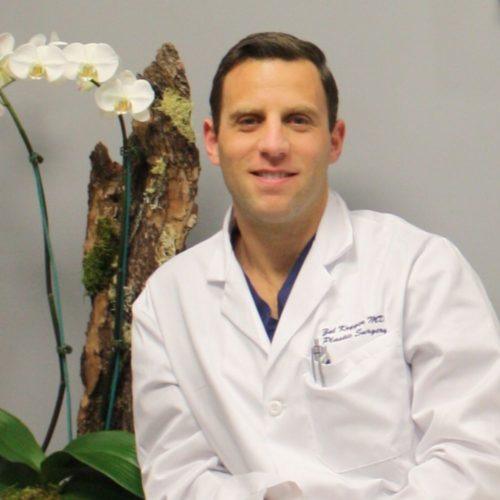
Zol Kryger, M.D.
Zol Kryger, MD is a board certified Plastic Surgeon. He is a member of the American Society of Plastic Surgeons. Along with his brother, Gil Kryger MD, he founded the Kryger Institute of Plastic Surgery.
He went to medical school at Stanford (with Peter) and then did his training in general surgery and plastic surgery at Northwestern in Chicago.
Dr. Kryger specializes in facial rejuvenation with fat grafting and the deep plane facelift and abdominoplasty with breast enhancement (the “mommy makeover”). Along with Gil, he has a strong interest in microsurgical procedures.
Zol grew up in Israel and after high school he served in an elite special forces unit of the Israeli Army specializing in reconnaissance.


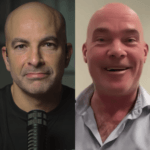
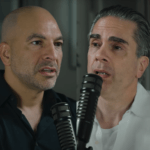
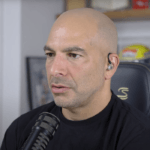
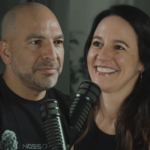
I’m a retired anesthesiologist and have recently discovered your podcasts.
I immediately became a member. I find your interviews superb and highly educational.
I listen to them while I workout! I’ve recommended them highly to my friends and colleagues.
Access to the interview notes are well worth the membership!!
Bravo Dr. Attia! Please continue your excellent podcasts!!
I am the past-Chair of the California Dental Associations Government Affairs Council and the current chair of their Political Action Committee (PAC). I am totally unaware of any efforts in the state of California to pursue any regulatory changes to the scope of the Dental Practice Act to allow dentists to perform a face lift.
Robert J. Hanlon Jr. DMD
Peter,
I found your podcast through Tim. Enjoying it so far, and the AMA episodes are so tantalizing that I’m planning on becoming a member once I get the chance. I’ve got a question:
I have a grandfather who’s dying from esophageal cancer. The path he chose for the few months he has left is to take pain medication, and ride it out. After being on more or less everything the doctor prescribed for him, he is now on Morphine, which I’m told is his last resort.
Is there a way I can help him? Anything related to Cannabis/THC is illegal here.
Thanks.
Regarding medical tourism, there seems to trend where instead of foreign doctors doing the surgery, the (american) doctor and patient fly to a foreign hospital where everybody saves!
https://www.nytimes.com/2019/08/09/business/medical-tourism-mexico.html
As with most of your episodes, I enjoyed this discussion.
However, I am surprised you did not challenge the comment about yearly or bi-yearly follow up with semi-annual MRIs for women with textured implants due to a 1:3000 to 1:10,000 risk of a serious complication.
This is a great example of risk asymmetry in medicine: the surgeon will only ever be criticized for a complication that could have been prevented with more frequent follow-up, but the patient will be exposed to the risk of “incidental-omas” and over-diagnosis arising from more frequent investigations (especially a modality as sensitive as MRI).
Admittedly, this is difficult to explain to patients, and functionally challenging in a litigious environment such as the US.
But it merits further discussion…
Josh Briggs
Anesthesia resident, Newfoundland, Canada
Plastic surgery is very safe surgery process. It comes with very good results. Thanks for sharing the blog on plastic surgery.
At 1:03 you both talked about the greatest screw up in medical regulation regarding silicone implants being taken off the market because of a “single newscast” with one crying woman. And then, the VERY next sentence by Dr. Kryger was, “They were a bad product; the silicone implants. The silicone was liquid, if you poked a hole in the implant it would drip out like honey.” So…clearly it was not a mistake to take them off the market and the thousands of women who had health issues with them were because they were a dangerous product. Sadly, they’re still a bad product and why hundreds of thousands of women have health issues far beyond capsular contracture. Anyone considering implanting, research breast implant illness and save yourself thousands of dollars and years of ill health.
I was also disturbed by Dr. Kryger’s response to the question of surveillance of ongoing findings regarding issues with implants, especially the gummy bear textured, to which he responded “there is a database where they beg and plead with us to do this….” However, he doesn’t and implied the same for other surgeons. How can issues be monitored and addressed if not reported by the very people to whom the issues are presented?
Again, for anyone considering breast implants, research breast implant illness and save yourself thousands of dollars and years of ill health.